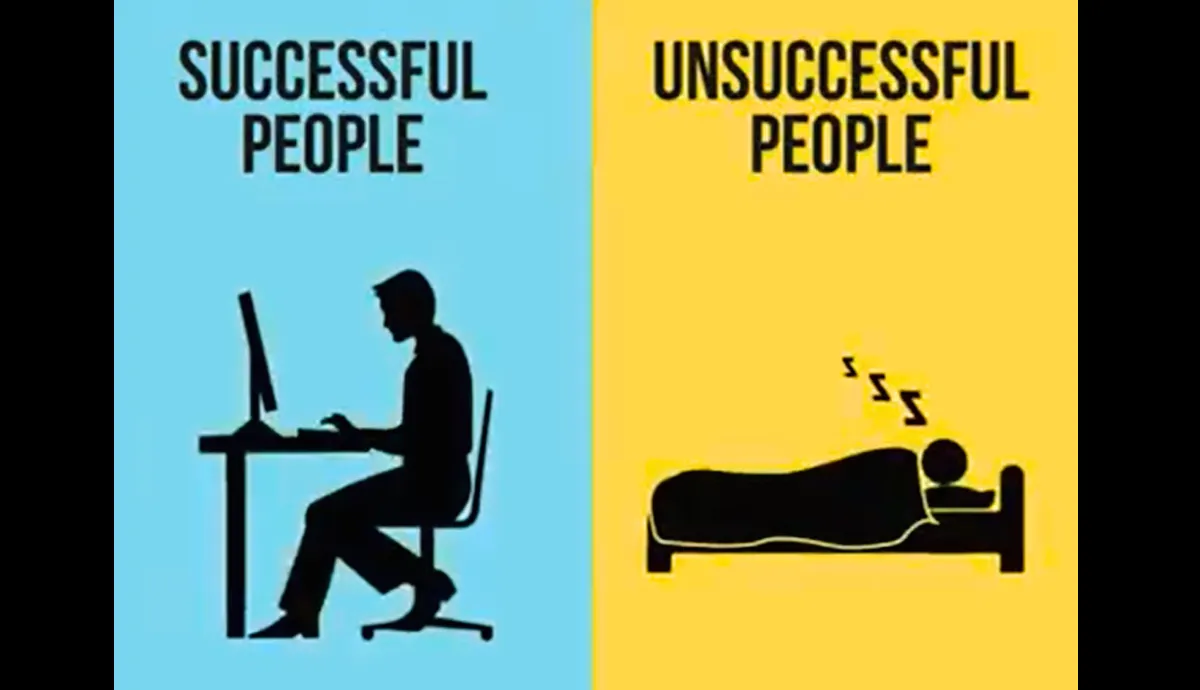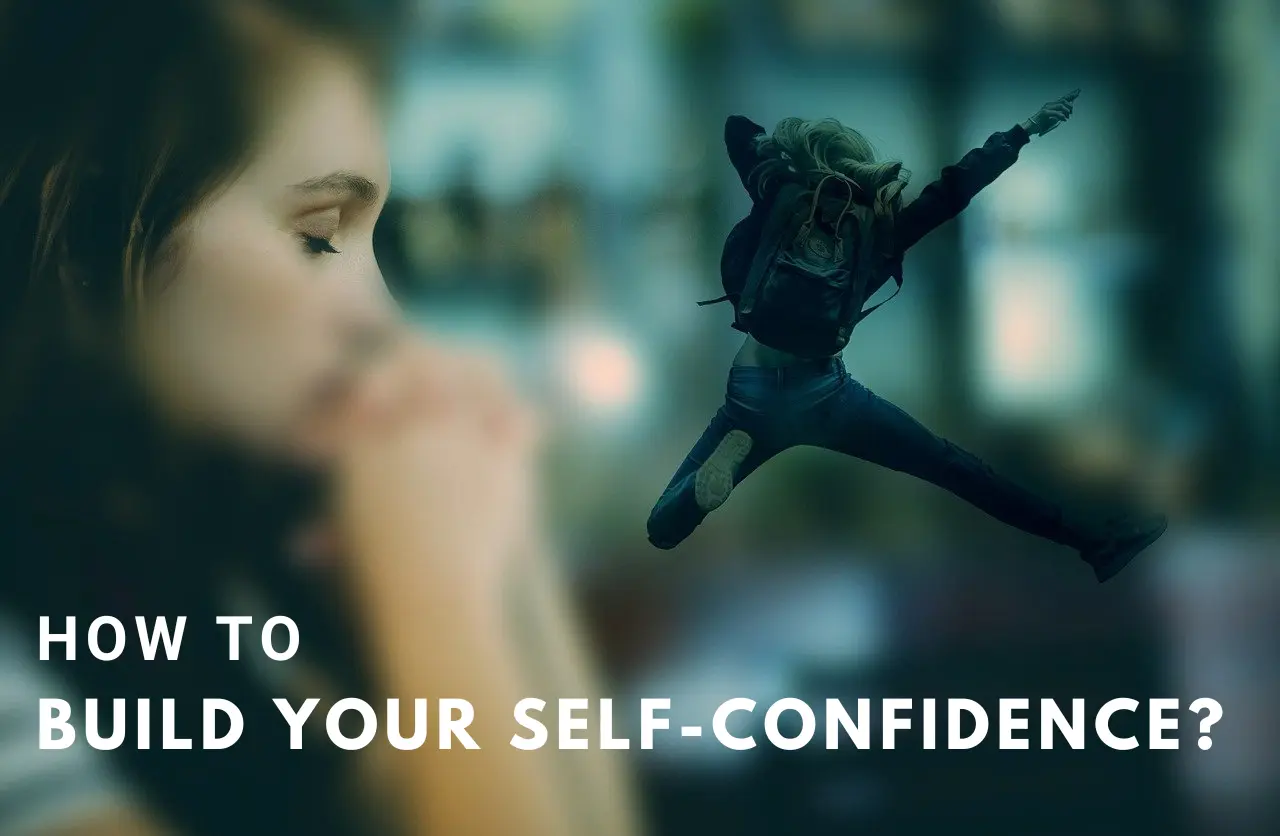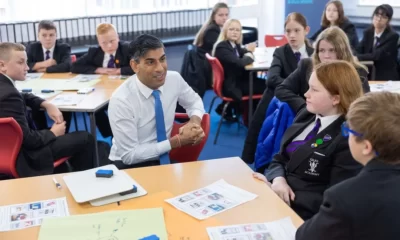Motivation
11 Things Rich People Do That The Poor Don’t

Have you ever wondered how rich people always remain rich? What are they doing and we are not? They have acquired a number of lessons and techniques along their journey to success. We aren’t only fascinated with their lifestyles but also the wisdom they have gathered.
Though millionaires belong from varying backgrounds, but they share some common traits. To follow the steps of those riches and climb that ladder of success, you should simply listen or–should you ever get the chance ask. There are many personalities who have started from a scratch and now is the owner of billions. Some of them are:
Larry Ellison: Larry Ellison, founder of ORACLE, did a number of odd jobs for 8 years before, he founded Oracle in 1977. Today, he is considered as the third wealthiest person in the world.
Howard Schultz: Howard Schultz, CEO of Starbucks, lived in a housing complex for poor. He took over an obscure coffee shop name Starbucks and went on to turn it into a worldwide franchise and a multi-billion-dollar empire.
Ingvar Kamprad: Ingvar Kamprad, Founder of IKEA, lived in a farm in rural Sweden, selling his neighbors just about anything he could get his hands on, from matches and pens to Christmas decorations and fish.
| Also Read: 7 Jobs that are Perfect for Older Adults |
Here, in this article, we share with you 11 lessons you can learn from billionaires. Insert these lessons or habits into your life to increase your wealth. You must learn these secrets because they guide you on your financial path to grand wealth.
11 Lessons Only Rich People Understand:
1. Obsession for Devotion:
Wealthy people aren’t drived by the smell of currency. Their primary goal isn’t the wealth. In reality, it’s their passion that helps them keep going through all the ups and downs of the path. They are driven by their innate passion for their likes.
Steve Jobs, co-founder of Apple, followed his passion for electronics. He dropped out of college and continued to follow his interest in technology. Henry Ford pursued his passion–a horseless carriage. Passion drives people to move forward and not surrender to failure.
These people don’t see failure as “failure” but a lesson to learn from and consider it as another step to climb higher. When one’s sole focus is on the income, the person becomes tired, that only keeps them running blindly towards promotions and higher paychecks.
So, if you’re interested into anything such as cars, technology, marketing, invest yourself into those stuffs. Nothing can be attained without patience, everything asks for you time and the more you give it, the more you attain.
2. Winners fail until they succeed:
Nothing can be achieved without failing. You never learn to stand, if you never fall. The only difference between those you thrive and those who doesn’t is that those thrive fail better.
As Oprah Winfrey, has said:
“You don’t have to hold yourself hostage to who you used to be.”
You don’t have to hold yourself back due to the fear of failure. Think out of the box. Failure can be viewed as valuable learning and opportunities to evolve themselves and their strategies. Every failure brings them a step closer to their passion and lead to a successful attempt.
Many people fear financial stability or losing a secure job, discouraging them from exploring new opportunities, hinder potential growth and limit financial growth. Don’t consider the rumble of failure before you as a mess but a stack of blocks to build an empire.
3. Discipline is the bridge between goals and accomplishments:
Self-discipline is the most vital key to success. During the accumulation phase, one should behold discipline close to themselves. Wealthy people prioritize financial discipline, for them, long-term benefits value over short-term desire.
Normal people go for latest trend as soon as they find their pockets heavy. Wealthy people go for higher investments and savings. Saving money must be in a discipline way. Millionaires at initial stage follows the 50/30/20 budget rule.
It says 50% of your income has to be used for your needs such as mortgage or rent, groceries, utilities, transportation and the next 30% for your wants such as clothes, outings, other entertainments and the last 20% goes for the investments, savings or emergency funds.
4. The Principles of Relationships:
Your surrounding influence who you become. So you must choose your acquaintance wisely. Most billionaires follow the “surrounding influence” principle before they begun to move towards their goal.
Connect with people who inspire you, motivate you and most importantly who share similar goals, mutual understanding. They often build connections with people who have achieved similar or higher success than themselves.
To attain the platform of success, attracting like-minded people and avoiding toxic people is crucial. Distance yourself from squads which dampen your spirit.
5. Today a Reader, Tomorrow a Leader:
Can a plant reach the sky without growing? No!!! To reach the highest position, one must read. Reading isn’t just reading, it is gaining knowledge, increasing our ability to think. Many billionaires, despite having a hectic schedule, makes time to read.
Successful people always look for ways to improve themselves and reading is the best way to do so. Other than reading self-development books, reading newspapers, magazines is also crucial to keep yourself up to date and compete in this fast-growing world.
According to the research of Thomas Crowley, 85% of self-made millionaires read at least 2 books per month. We have one such great example of Elon musk, when asked about his knowledge on the concept of building rockets, he replied “I read Books”. Books are a hidden treasure, explore them and become rich.
6. Early to rise and early to bed:
This is the phrase, we have been hearing since we were kids. Most millionaires follow this rule. Early birds catches the worm. Adopting this habit has significant benefits. Sleeping late makes your mind lazy. Waking up early freshens your mind and gives you more time to think than an average person.
You feel more energetic, confident and mentally prepared and that is the sign of an efficient work. Successful people like Apple CEO Tim Cook wakes up at 4am to read email and Michelle Obama rises at 4:30 am for a workout.
Harvard Biologist Christoph Randler discovered that early risers are more proactive. They’re also more likely to anticipate problems and minimize them efficiently, which leads to more success especially in the business world.
7. Run the day, don’t let the day run you:
Success doesn’t come instantly. It is a day by day process. And you don’t become successful suddenly. It happens everyday. You achieve little goals everyday and that counts up together and you become successful and wealthy.
A day has 24 hours, and it is how one utilizes it, that separates the rich from poor. Utilizing each and every minute is the basic step of being wealthy. The first and foremost work to do in the morning is organize your day.
Average people only have the idea of what they want to do but rich people write it down and allocate time for each activity. They strictly stick to the schedule. Planning your day helps build a sense of direction and avoid spare time.
8. The only way to save money is to invest it:
Saving money is crucial, and one effective strategy is to channel your funds into investments. Investments offer opportunities for increased returns compared to traditional savings, making them a valuable avenue for financial growth and security.
Wealthy people find investing money as saving money. They always search for opportunities to expand their portfolio. Investment is a primary method of getting wealthy. Investing blindly will not lead to being wealthy. You need a mentor first to educate yourself on marketing strategies and policies.
9. Brilliant things happen in calm minds. Be calm. Be brilliant:
Committing oneself to spending quiet time with themselves each day is the secret to operate at the highest level. Meditation has a positive impact on everyone’s life. People like Richard Branson, Ray Dalio, and Oprah Winfrey attribute meditation to part of the reason they are so successful.
During the accumulation phase, days goes by feeling stressed, important conversations, huge decisions to make, you want to do that from a grounded place within you, so you feel calm and clear-minded, with sharpness of mind.
Going to meditation is a way to reach a level of consciousness and awareness, so your work frequency increases. There are many ways to meditate, choose the one that suits you and calmers you much better.
10. Patience and time do more than strength and passion:
Wealth doesn’t happens overnight. It’s an ever going journey. The price for such a journey is your patience. And you keep gaining success through this journey. No millionaire has gained fortune through lottery wins or any treasure found but through persistent hardwork and smart decisions.
Larry Page, co-founder of Google and a board member of its parent company, this wasn’t achieved overnight. He took risks, commits to his passion, and the results showed up. Financial growth requires dedication strategic planning and passion.
11. Real Estate, doubling your money with time:
Real estate investment has allured many billionaires. Real estate has consistently proven to be a wealth-building strategy. According to research conducted by Thomas J. Stanley, author of “The Millionaire Next Door,” a significant portion of millionaires in the United States have built their wealth through real estate investments.
Millionaires consider investment in real estate as wealth preservation. Real estate offers a tangible and stable asset class that can withstand economic fluctuations. This wealth grows over generations. It is also a secret to passive income, which only doubles after a single investment.
They often start from residential real estate to commercial real estate and finally to Real Estate Investment Trusts (REITs). Real estate is not just a vehicle for wealth creation; it’s a timeless strategy embraced by millionaires worldwide.
So, these are the few very important things or say lessons that only rich people understand and follows regularly. If you want to become one like them, then I must say that you should also follow these useful lessons seriously.
Author Note: If you like this article do share with your friends and family on WhatsApp, Facebook, and LinkedIn.
Inspirational Quotes from Billionaires:
If you think you can do a thing or think you can’t do a thing, you’re right.” – Henry Ford
“The most dangerous poison is the feeling of achievement. The antidote is to, every evening, think what can be done better tomorrow.” –Ingvar Kamprad
“It’s fine to celebrate success but it is more important to heed the lessons of failure.” –Bill Gates
Motivation
The Major Difference Between SUCCESSFUL and UNSUCCESSFUL People

#1. SUCCESSFUL PEOPLE have the SELF-BELIEF and FAITH in their abilities to motivate, maintain and propel themselves towards their achievements. The word NO seldom exists in their vocabulary. People with self-confidence are often inspiring to others. Unsuccessful People (UNSs) have little self-belief. Their overriding word is CAN’T, and they tend to beat themselves up with negative labels and thoughts most of the time.
#2. SUCCESSFUL PEOPLE have a long-term confident VISION of their goals compared to the short-term fearful and anxious approach of the UNSs.
#3. SUCCESSFUL PEOPLE take the necessary RISKS and do the JOBS that the USPs fear to do, or would not do. Their COMMITMENT is total. UNSs are often unwilling to make that commitment or to pay the price required for their success. For example, they would rather remain in an unfulfilling, stressful job and blame others for their unhappiness than to take the risk of finding something more satisfactory, rewarding and reinforcing. Iif stress stopping you from achieving your goals then you must read this. They lack the long-term vision, commitment or sacrifice required to get what they truly desire.
Read This: If Stress Stopping You From Achieving Your Goals
#4. SUCCESSFUL PEOPLE take the necessary RISKS and do the JOBS that the UNSs fear to do, or would not do. They are willing to TRY all possible ways, and do all kinds of tasks, to get their desires. They don’t care about being ‘wrong’. For them TRYING is more important than ‘failing’ because each ‘wrong’ leads them nearer to being right. Here are the 10 why reasons why successful people sometimes fail? For USPs ‘not failing’ and being ‘right’ are more important than trying. They tend to believe in the ‘easy way’ to achievement, or can see ‘no way’ at all to it.
#5. SUCCESSFUL PEOPLE CHALLENGE themselves constantly, routinely making high demands upon themselves and settling for the best they can muster in whatever way possible. UNSs settle very quickly and cheaply for whatever they can get, believing that is the only thing available to them.
| Also Read: 11 Things Rich People Do That The Poor Don’t |
#6. SUCCESSFUL PEOPLE make strong and unwavering LIFE DECISIONS which they use as guides to personal fulfilment and which they never compromise. UNSs move with the wind in their principles, with few life decisions to guide them. Their thoughts, choices and behavior are dictated mainly by the moment and the context.
#7. SUCCESSFUL PEOPLE see SETBACKS as spurs to greater determination and fulfilment of their potential. UNSs regard such obstacles, and any ‘failure’, as reinforcement of their inadequacy, inferiority and perceived lack of talent – a vindication of their low self-belief.
#8. SUCCESSFUL PEOPLE judge themselves INTERNALLY, by their own yardstick, not by external praise or criticism. Any external praise acts as a vindication of their own self-belief. They tend to blame no one for their setbacks, believing that all obstacles are tests to improve their skills and talents and bring them nearer to that cherished goal. UNSs tend to fear rejection, always judging themselves by the yardstick of others and competing with them too. UNSs value external approval and praise, which then become self-fulfilling prophecies, and often blaming others when things go against them.
#9. SUCCESSFUL PEOPLE tend to be POSITIVE and have an OPEN MIND for learning. They are always seeking knowledge, information and greater options. UNSs tend to have limiting, negative and restricting beliefs about themselves, their world and their ability, based on fear. They prefer the comfort of what little they know to expanding their knowledge and horizons. SUCCESSFUL PEOPLE are always improving and learning while unsuccessful ones tend to stay in the same rut of fear, closing out new options, fearing the worst and retreating from experiences which might threaten their comfort zone.
#10. SUCCESSFUL PEOPLE tend to be CONFIDENT and self-assured in their own skins, always creative and with high expectations. UNSs tend to lack confidence and self-esteem, unhappy with who they are but fearing to take action. They can always find one excuse after another for their low expectations, constant desire to be perfect and their lack of achievements.
Motivation
Believe in Yourself: How to Build Your Self-Confidence?

There’s one asset more valuable than any material possession. Explore what it is and how you can develop this powerful tool for success and happiness.
Self-confidence is the most valuable single asset we can possess because it often moves mountains. It is a product of self-esteem which, in turn, is dictated by self-belief, self-love, and self-value.
When those three elements are absent, it is impossible to have true confidence in oneself because the essential foundation would be missing.
What is Low Self-esteem Means?
Low self-esteem is about feeling worthless. It is well-nigh impossible not to compare oneself with others and be found wanting. Additionally, the low confidence person cannot affirm their uniqueness if they do not value themselves enough to appreciate that uniqueness in the first place!
They also cannot focus on their talents and strengths if their weak self-belief tells them that they don’t have any! It would be very difficult for them to see those strengths. Low self-esteem is driven by fear: the fear of not being good enough, not being wanted and valued and being worthless and insignificant.
Nevertheless, you will find methods that may develop self-confidence in the following. It’s time to believe in yourself! Let’s discuss some powerful methods to build unshakeable confidence and transform your life.
| Also Read: 11 Things Rich People Do That The Poor Don’t |
| Also Read: 10 Reasons Why Successful People Sometimes Fail? |

How to Build Your Self-Confidence?
Boosting your self-confidence is a transformative journey that requires self-awareness, practice, and patience. Remember that self-confidence is not about being perfect but about embracing your strengths, accepting your imperfections, and believing in your potential to thrive.
1. Accept Yourself:
The first and foremost important thing is “Accepting yourself. Admit your mistakes and move on.” That’s a really silly thing because the basis of low confidence is a lack of self-acceptance, always thinking the worst of oneself. Once we identify and understand the negative ways, that affect us, then we can turn them around to our advantage – mainly through emotional exploration and self-education – we are on our way to appreciating our unique selves and building true confidence within us.
2. Be kind to yourself, even when you mess up:
Everyone makes mistakes! Treat yourself with kindness, like you would a friend. Accept that you’re good at some things and not so good at others. This will help you feel better about yourself overall, which is key to feeling confident.
3. Set goals you can actually reach:
Don’t try to climb Mount Everest on your first hike! Break big goals into smaller, easier steps. Celebrate each step you take, no matter how small. This will show you that you’re capable and can achieve things, which will boost your confidence. Set targets yourself you could logically attain. Any time you attain a target, it increases on your own self-assurance and allows you to rely on oneself a lot more.
4. Stop the mean voice in your head:
We all have that voice that tells us we can’t do things. When you hear that voice, tell it to stop! Remind yourself of all the awesome things you can do. Instead of putting yourself down, tell yourself positive things that will help you believe in yourself. Praise oneself to your successes. Prevent believing that you happen to be just blessed. Recognize that it’s abilities and talents that aided you attain your main goal.
| Also Read: How to Improve Your Communication Skills with ChatGPT? |
| Also Read: How to Create a Winning LinkedIn Profile for Job Search? |
5. Believe you can get better:
Challenges are there to help us learn and grow, not to make us feel bad. Don’t be afraid to try new things, even if you’re not perfect at them right away. The more you practice, the better you’ll become. Believing you can improve will make you feel more confident in taking on anything. Learn from the blunders as opposed to accusing and demeaning oneself to your disappointments. Focus on your own disappointments only reduce yourself respect and does not enable you to progress self-confidence. Acknowledge your blunders for what they’re and proceed.
6. Take care of yourself:
Feeling good physically and mentally will help you feel good about yourself overall. Eat healthy foods, get enough sleep, and do things you enjoy. Taking care of yourself shows yourself that you’re worth it, which will give you a confidence boost!
7. Surround yourself with self-confident people:
Surround yourself with self-confident folks, since they may possibly motivate one to rest assured also. Find out how they conduct themselves, communicate and bring by themselves and attempt to integrate these qualities in your very own lifestyle.
Motivation
Best Books for Students: Must-Reads for Academic Success

Are you a student who loves to read? Or maybe you’re looking for a way to improve your reading skills? Whatever your reason, we’ve got you covered with our list of the Best Books for Students. From classic literature to modern-day bestsellers, these books are sure to capture your attention and keep you engaged from beginning to end.
Reading is an essential part of any student’s academic journey, but it can also be a fun and enjoyable pastime. Whether you’re looking for a book to help you escape reality or one that will challenge your thinking, our list has something for everyone. So, grab a cup of coffee, find a cozy spot, and get ready to dive into some of the best books out there.
✅ Essential Classics for Students:
As a student, it’s important to read and understand the classics. These books have stood the test of time and continue to be relevant today. Here are some essential classics that every student should read:
To Kill a Mockingbird by Harper Lee:
This Pulitzer Prize-winning novel is a must-read for every student. It deals with themes of racism, injustice, and the loss of innocence. The book is set in the 1930s and follows the story of a young girl named Scout Finch as she grows up in a small Southern town and it’s based on a true story.
How to Win Friends and Influence People by Dale Carnegie:
How to Win Friends and Influence People is a timeless guide to effective communication and relationship-building. Focused on principles that transcend generations, the book imparts valuable lessons on understanding others, fostering genuine connections, and persuading with empathy. Through relatable anecdotes and practical advice, Carnegie’s classic remains a cornerstone for personal and professional success, emphasizing the transformative power of positive interpersonal skills.
The 5 AM Club by Robin Sharma:
The 5 AM Club is a transformative guide that champions the significance of early morning routines for personal development. Robin Sharma introduces the concept of the 5 AM formula, emphasizing its potential to enhance productivity, focus, and overall life satisfaction. Through compelling storytelling and practical insights, the book inspires readers to adopt a disciplined morning routine for achieving peak performance and holistic success.
1984 by George Orwell:
1984 is a dystopian novel that explores themes of government control, propaganda, and the loss of individuality. The book is set in a future society where the government has complete control over every aspect of people’s lives.
Brave New World by Aldous Huxley:
Brave New World is a dystopian novel that explores themes of science, technology, and the dangers of a society that values pleasure over individuality. The book is set in a future society where people are genetically engineered and conditioned to be happy and content with their lives.
Reading these essential classics will not only expand your knowledge of literature but also help you understand the world around you. So grab a copy of these books and start reading today!
✅ Top Non-Fiction Reads for Academic Growth:
When it comes to academic growth, reading non-fiction books can be incredibly helpful. Not only do they provide valuable information, but they can also inspire you to think critically and creatively. Here are some of the best non-fiction books for students that can help you grow academically.
Biographies That Inspire:
Biographies are a great way to learn about the lives of people who have achieved great things. Here are some of the best biographies that can inspire you to achieve your own goals:
Becoming by Michelle Obama: This memoir by the former First Lady of the United States Michelle Obama is an inspiring story of a woman who overcame obstacles to become a lawyer, public servant, and advocate for women’s rights.
Steve Jobs by Walter Isaacson: This biography of Steve Jobs, the co-founder of Apple, is a fascinating look at the life of a man who changed the world of technology.
The Immortal Life of Henrietta Lacks by Rebecca Skloot: This book tells the story of Henrietta Lacks, a woman whose cells were used without her knowledge to create the first immortal human cell line. It raises important ethical questions about medical research and informed consent.
✅ Science and Technology Explorations:
Science and technology are constantly evolving, and reading about the latest discoveries can help you stay up-to-date. Here are some of the best non-fiction books on science and technology:
The Selfish Gene by Richard Dawkins: This book is a classic in the field of evolutionary biology, exploring the idea that genes are the driving force behind evolution.
The Emperor’s New Mind by Roger Penrose: This book explores the relationship between consciousness and the laws of physics, challenging traditional views on the nature of the mind.
The Innovators by Walter Isaacson: This book tells the story of the pioneers of the digital revolution, from Ada Lovelace to Bill Gates.
✅ Understanding History and Society:
Reading about history and society can help you understand the world around you and the forces that shape it. Here are some of the best non-fiction books on history and society:
A People’s History of the United States by Howard Zinn: This book offers a different perspective on American history, focusing on the experiences of ordinary people rather than the actions of politicians and elites.
The New Jim Crow by Michelle Alexander: This book explores the ways in which the criminal justice system in the United States has perpetuated racial inequality, particularly through the War on Drugs.
The Better Angels of Our Nature by Steven Pinker: This book argues that violence has declined throughout human history, and explores the reasons why.
Reading non-fiction books can be a great way to learn new things and grow academically. Whether you’re interested in science, history, or biographies, there’s a non-fiction book out there that can inspire you.
✅ Modern Novels Every Student Should Read:
As a student, reading modern novels can be a great way to gain insight into the world around you and develop your critical thinking skills. Here are two subsections of modern novels every student should read:
Contemporary Fiction:
Contemporary fiction novels are a great way to stay up-to-date with current social issues and trends. Some highly recommended contemporary fiction novels for students include:
| The Immortalists by Chloe Benjamin |
| The Water Dancer by Ta-Nehisi Coates |
| The Testaments by Margaret Atwood |
| The Nickel Boys by Colson Whitehead |
| Normal People by Sally Rooney |
These novels tackle topics such as race, gender, identity, and power dynamics in modern society. They offer thought-provoking insights and can help students develop empathy and understanding for diverse perspectives.
Young Adult Favorites:
Young adult novels are not just for teenagers. Many young adult novels deal with complex themes and offer valuable life lessons that can resonate with readers of all ages. Some highly recommended young adult novels for students include:
| The Hate U Give by Angie Thomas |
| Eleanor and Park by Rainbow Rowell |
| The Fault in Our Stars by John Green |
| The Hunger Games by Suzanne Collins |
| Divergent by Veronica Roth |
These novels deal with topics such as social justice, mental health, love, and personal growth. They offer relatable characters and engaging plots that can keep students hooked and invested in reading.
In conclusion, reading modern novels can be a great way for students to broaden their horizons and gain valuable insights into the world around them. By exploring contemporary fiction and young adult favorites, students can develop their critical thinking skills and gain a deeper understanding of themselves and others.
✅ Self-Improvement Books for Personal Development:
If you are looking to improve yourself and your personal development, there are a variety of self-improvement books available that can help you achieve your goals. Here are two categories of self-improvement books that you may find helpful:
Motivational Literature:
Motivational literature can help you find inspiration and motivation to achieve your goals. Some of the best motivational literature includes:
| The 7 Habits of Highly Effective People by Stephen Covey |
| Think and Grow Rich by Napoleon Hill |
| The Power of Positive Thinking by Norman Vincent Peale |
These books can help you develop a positive mindset, set goals, and stay motivated to achieve them.
✅ Time Management and Productivity:
If you struggle with time management and productivity, there are a number of books that can help you develop better habits.
1. “Getting Things Done” by David Allen is a popular book that teaches readers how to manage their time and tasks more effectively.
2. “The One Thing” by Gary Keller and Jay Papasan is another useful book that helps readers focus on their most important tasks and eliminate distractions.
3. “Atomic Habits” by James Clear provides practical advice for developing good habits and breaking bad ones.
By reading self-improvement books in these categories, you can develop the skills and mindset necessary to achieve your personal and professional goals.
✅ Literary Anthologies and Collections:
If you’re looking for a variety of different authors and styles, literary anthologies and collections are a great option. Here are a few recommendations:
The Norton Anthology of English Literature:
This anthology is a classic for a reason. It covers a wide range of English literature from the Middle Ages to the 21st century, and includes not only well-known authors but also lesser-known ones. Each volume is packed with helpful notes and introductions to help you understand the context of each work.
The Best American Short Stories:
This annual collection is a great way to stay up-to-date with the best short fiction being published in the United States. Each volume is edited by a different well-known author, so you get a variety of perspectives and styles.
The Vintage Book of Contemporary American Poetry:
This anthology is a great way to discover new poets and explore the diversity of contemporary American poetry. It includes work by both established and emerging poets, and covers a wide range of styles and themes.
The Penguin Book of Contemporary British Poetry:
Similar to the Vintage Book of Contemporary American Poetry, this anthology is a great way to explore the diversity of contemporary British poetry. It includes work by both established and emerging poets, and covers a wide range of styles and themes.
The Norton Anthology of African American Literature:
This anthology is a comprehensive collection of African American literature from the 18th century to the present day. It includes not only well-known authors like Langston Hughes and Toni Morrison, but also lesser-known ones who are equally deserving of attention.
Overall, literary anthologies and collections are a great way to explore different authors and styles, and to discover new voices and perspectives.
✅ Guides to Navigating Student Life:
As a student, you need to be equipped with the right tools to navigate your academic journey successfully. Here are some helpful guides to help you navigate student life.
Study Skills and Strategies:
Developing effective study skills and strategies is crucial to your academic success. Here are some books that can help you improve your study skills:
1. “How to Read a Book” by Mortimer J. Adler and Charles Van Doren: This book provides practical tips on how to read and understand complex texts.
2. “Make It Stick: The Science of Successful Learning” by Peter C. Brown, Henry L. Roediger III, and Mark A. McDaniel: This book offers evidence-based strategies for effective learning and retention.
3. “The Study Skills Handbook” by Stella Cottrell: This book covers a range of study skills, including time management, note-taking, and exam preparation.
Health and Wellness:
Maintaining good health and wellness is essential for academic success. Here are some books that can help you take care of your physical and mental health:
1. “The Body Book: The Law of Hunger, the Science of Strength, and Other Ways to Love Your Amazing Body” by Cameron Diaz: This book provides practical advice on how to maintain a healthy lifestyle.
2. “The Happiness Advantage: The Seven Principles of Positive Psychology That Fuel Success and Performance at Work” by Shawn Achor: This book offers insights into the science of happiness and how it can improve your academic performance.
3. “Mindfulness: An Eight-Week Plan for Finding Peace in a Frantic World” by Mark Williams and Danny Penman: This book provides a step-by-step guide to mindfulness meditation, which can help reduce stress and improve mental health.
By incorporating these books into your student life, you can develop the skills and strategies necessary to achieve academic success while maintaining good health and wellness.
-

 Career10 months ago
Career10 months agoCareer Opportunities for Seniors: 7 Jobs that are Perfect for Older Adults
-

 Job Description10 months ago
Job Description10 months agoGraphic Designer Job Description: Education, Salary, Skills, Work Hours
-

 News10 months ago
News10 months agoStudents’ question to UK PM Rishi Sunak: “What if your kids started smoking?
-

 Career9 months ago
Career9 months ago13 Best Jobs That AI Can’t Replace: A Guide to Future-proof Careers
-

 Money9 months ago
Money9 months agoHow To Get Paid to Read Books? (9 Best & Legit Sites)
-

 Career7 months ago
Career7 months agoStandard Employment Contract Template Example for UK (Word & PDF)
-

 Job Description7 months ago
Job Description7 months agoSupport Worker Job Description: Qualifications, Skills, Salary, Working Hours
-

 News8 months ago
News8 months agoTop 10 Richest Countries in 2024 By GDP Per Capita






















